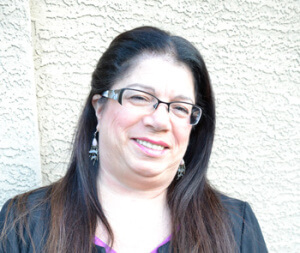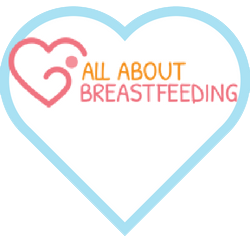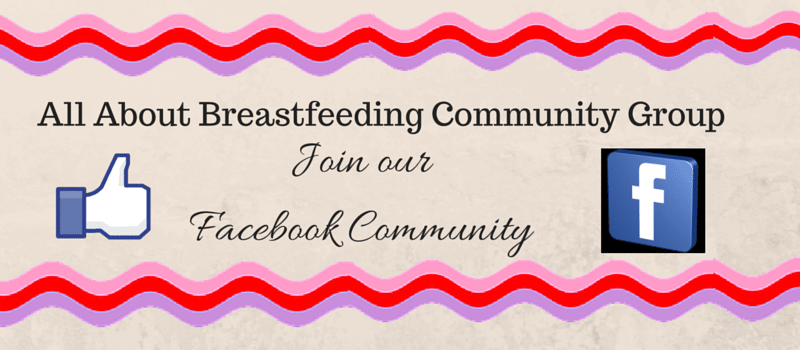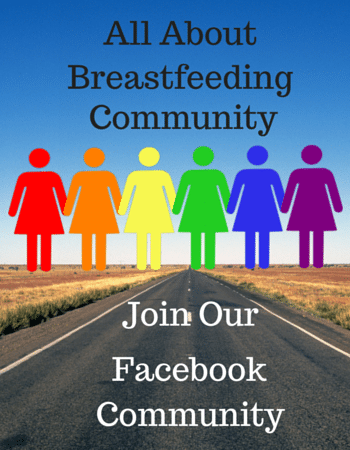
Today’s Podcast
Episode 409
Our culture is about that shiny, happy new mom. We are way more interested in – well how is her body? did she bounce back? I Is she thin again? How does she look? Did she lose all the weight? Who cares? Frankly, you’re not suppose to look the same. It’s the most life changing thing you go through to have a child. To be a mom, everything changes. The way you look at the world. How you deal with people. How you think about yourself. That’s way more important than the physical aspects. WOW! My abs are perfectly flat again, how about yours. We’re so focused on that stuff in the Western World and I’ve heard that in Eastern cultures they are not as focused on that. When a mom has a baby they come around her. They want her to be well. I don’t think we do a great job of that here in the United States.
Her Bio:
Kristina Cowan started writing when she was five. Two decades later, she earned a master’s degree in journalism from Northwestern University. After eight years in D.C. working as an education reporter and later, as an energy-policy editor, she went freelance. These days, she’s working on several new writing projects. She lives in the Chicago area with her husband and their two children. When Postpartum Packs a Punch is her first book.
Background History:
Kristina grew up in a suburb of Cleveland Ohio. She was the youngest of 3 children. Her Dad was a first generation Greek American and her mom was of German descent.
When she was 8 years old, her parents were divorced. This was quite a traumatic event in her childhood. She realized that shuttling between both parents is not an easy thing. Another major life event had a huge impact on her as a young girl.
When she was 15 years old, her mom passed away at 46 years of age from breast cancer. Losing her mom at such an early age is one of the things that have defined her the most as a woman and as a mother. Kristina has now been living in Chicago since 2008.
Not having had her mother as a role model, she realized she was afraid to have children. Most of her friends who were mothers had their moms help and she worried that she would not know what to do and worried that she would not be a good mom.
Her writing:
She started writing at age 5 years old. It was her favorite thing to do. The year that her mom died, her English teacher encouraged her to write about her mom. Her teacher suggested that she might pursue writing. She got her Masters in Journalism and loved writing stories and interviewing people. She loved the non fiction world.
Did her mother breastfeed her?
Yes, she nursed into toddlerhood. Her mother had read somewhere that it was very healthy and other cultures breastfeed well past the newborn years. Her mother did not have the opportunity to breastfeed her 2 older siblings because she had to work. However, with her second marriage, she was able to stay at home and could breastfeed as long as she desired. Kristina did say that her mother did get quite a bit of flack for nursing so long, however, she followed her heart and did what felt best to her.
Kristina tells the story of her nursing until Kindergarten. She told her teacher that she did not nap unless her mom was close and they could nurse. Kristina feels that it was all fine. Her health was excellent and she feels that long term nursing helped boost her immune system as well as contributed to her close bond to her mom.
Birth trauma and breastfeeding
Kristina had a wonderful pregnancy with her son. She went to one of the best hospitals for her birth. She knew moms had cesarean sections and possibly a baby who needed to go to the NICU, however, she did not really read about moms who had traumatic births.
A women will have an experience and will feel violated. Whether this is because of forceps delivery or her baby needing to go to the NICU. In the flurry of activity, communication may not be the best and unexpected turn of events can leave a women feeling violated.
Kristina’s physician suggested she schedule an induction on a day that she was on call. Kristina has since learned the risk factors associated with scheduled induction. She states that unless it was medically indicated, this is not a plan she would make again.
The pitocin induction was difficult for her as “her body did not like the pitocin.” Her contractions went from being bearable to unbearable. The epidural numbed her body from the waist down and she could not feel to work along with her body during the pushing stage. She pushed for 3 hours and this caused her baby’s heart rate to drop and for her to feel faint. Since she was not able to push her baby out, the decision to have a forceps birth was made. Quickly things changed in the delivery room as she received more medication, additional staff came into the room, and this huge device called forceps go into your body to pull out your baby. She could hear the skull cracking. Kristina said that everything happened so quickly. The forceps worked, but they injured her baby as his face was bleeding and she sustained a huge tear. Getting stitched up and everything that happened was quite traumatic.
All of this birth trauma kept replaying in her mind. She was asked to leave early because the hospital needed the room. Once home, she was unable to go to the bathroom. She went to the ER and had all sort of complications. All of this, of course, was very traumatic. She worried that her baby might get a communicable disease and he will die and that her health issues were going to cause her to die. All of this led to her crying spells days later. She felt that she had endangered her baby’s life and what was she doing being a mom. Of course, in hindsight, she understands that this was all her perception and that she was doing the best job she could.
Had Kristina taken a childbirth class?
Yes, her and her husband took several classes. She remembers that some birth complications were mentioned and they did talk about c/sections, but she did not think she would need one. When she was given the option of forceps or a cesarean section, she chose the forceps because she did not want to have come this far in her labor only to have major abdominal surgery.
Postpartum Depression:
Kristina feels that about 80% of her postpartum depression could be attributed to her birth trauma. She tells us that she is a “glass half filled person” and she knew something was drastically wrong. She reached out to her OB and asked for help. Thank goodness her OB was very helpful and offered her some options for care. She suggested medication along with talk therapy. Kristina has found in her research that medicine alone is like a band-aid. The research shows that moms do better with both medication and talk therapy. She spent about 4 months on medication and in therapy.
Kristina highly recommends getting help sooner rather than later. The longer you wait, the more difficult it is to recover. We talked about the stigma associated with admitting that you need help and encourages moms to not allow this to get in there way of asking for help.
We talked about the pressures that new moms feel to get back to their usual self – Have they lost the weight? Do they have flat abs? Well, the reality is that we will never be the same. Becoming a mother changes us physically as well as emotionally and how we look at the world around us.
Kristina feels that part of her postpartum depression was because she wanted things to be as they use to. She expected her life to go back to the way it was. She now recognizes that it is okay to not be the same person as you were before. We learn and grow as a mother and how unhelpful it is to want to stay the same and how important it is to accept your new life and embrace it.
Kristina tells us that Motherhood is the hardest thing she has done and the best thing she has done. It is also not about feeling like you have “got this” once you get through the newborn stages as things are always changing. I like to say that this is a “rite of passage” that mothers need to go through. Hopefully they have at least one experienced mom who has walked this path before and can help them through it.
Kristina’s breastfeeding experience:
Kristina did not have any problems nursing either of her two children. She tells us that she just assumed she would breastfeed. She tells us that perhaps it was because of her personal experience nursing until she was in Kindergarten.
Because she could not breastfeed right away, she did ask for a pump so he could have her milk until she could breastfeed him. Her baby latch on right away, she had plenty of milk and he gained really well. She was so glad to get a good report from her pediatrician who said that he was so chubby and healthy, he could almost not believe that she was breastfeeding because he looked so good.
When he did ask her about breastfeeding and she told him that she was breastfeeding a good 45 minutes on both sides.. her Dr. then said; Oh, my gosh that’s not right – Your breasts are going to fall off. Kristina just knew this was bad information and she knew there was nothing wrong with her breasts or her milk. and she wound up switching pediatricians. She said to us that breastfeeding was one thing that her body knew what to do. It kicked right into gear and she was grateful for this.
Kristina understands that breastfeeding does not always go as easy for everyone, however, she encourages moms to keep working at it – that it is worth sticking with it. She feels like it was an anchor point for her and helped with her postpartum depression. She spent the downtime as bonding time for her and the baby and was good for her.
Postpartum Depression – Medication – and Breastfeeding:
Kristina supports the decision to talk to your care provider about taking medication during postpartum depression. Under the direction of her physician, she took Zoloft for about 4 months and felt that it really helped her manage her emotions and enabled her to keep breastfeeding and be a mother to her baby. She did have to deal with others judging her and that she was nursing while taking medication and how that might affect her baby. Kristina felt comfortable with the research she did and with the expertise of her physician who prescribed the medication. She said that her baby was fine and she is comfortable with the decision that she made.
How did writing this book help Kristina?
She told us that she loved writing this book. She was about 2 weeks into the middle of her postpartum depression with Noah, she decided that when she got well, she was going to do something about it… possibly write about it because this is her background.
As she did her research and realized how common this was she decided to write a book on the subject. She said that she wanted to write the book that she wished she had when she was going through this with Noah. She wanted the research, for sure, but she also wanted the human interest side of it. It took her a while to write the book, as life circumstances got in the way, such as the death of her brother and the birth of her daughter. She kept pushing through, accepted the help from others who offered childcare help and just continued to write.
Kristina says that it helped put her trauma into perspective. She enjoyed talking to other moms from all over the world and learning about their experience. She knows it was also helpful to others that she interviewed.
Postpartum depression in men: What she learned – talking to Mark Williams
Mark Williams is the founder of the online support network Dads Matter UK. Kristina discussed the issue with Mark regarding the increased difficulty that men have in talking about their feelings and in this case, about postpartum depression. He has an interesting and effective philosophy about helping men talk about their feelings because he says that the way men communicate is different than women. I really like the fact that Kristina does talk about male postpartum depression in her book.
Postpartum Obsessive-compulsive disorder:
After her first birth, Kristina had intrusive images which she recognized as something foreign. As she interviewed other women and heard about their experiences, she learned that this was not uncommon. Jonathan Abramowitz, Ph.D told her that a majority of new parents will have unwanted thoughts or images at some point during their postpartum period. I am grateful that Kristina talks about POCD in her book.
Pearls of wisdom for the new mother:
You are hardwired as a new mom to know when something is not right. You know when something is not right with yourself or with your child. It is a gift that we have been given. Always trust your gut. Always ask for help. It is a sign of strength to ask for help.
Resource:
Postpartum Support International:
postpartum.net 1-800-944-4773
Kristina’s contact information:
kristinacowan.com
kristina.cowan@gmail.com
Facebook: Kristina Cowan, Author
Twitter: @kristinacowan
Instagram: authorkristinacowan
Website: https://www.kristinacowan.com/
Publishers Weekly’s review of my book: https://www.publishersweekly.com/978-1-946665-00-3
Amazon link for my book: https://www.amazon.com/dp/B072333H1B/ref=dp-kindle-redirect?_encoding=UTF8&btkr=1
Your Online Breastfeeding Class
Learn how to breastfeed – Be comfortable. Be confident.
The learning continues well beyond the average breastfeeding basics class that is 60-90 minutes. In this class, we have over 15 hours of audio lessons, combined with many hours of videos to help support what you are learning. We cover breastfeeding and medication safety, what to do if your baby does not latch on, common breastfeeding challenges, tongue tie, premature babies, building a good supply, returning to work and pumping. Take a look at the list below and follow the link to the class page so you can see more specifics of what is covered. I want to ensure that we got you covered and that you have great support well beyond the newborn days.
- Using your pregnancy time to prepare for breastfeeding
- Tips on how to prepare your home for a newborn
- Specific details about the first 24 hours after birth.
- Exactly what to expect the first two weeks after birth
- What can you do if your baby is not latching on
- Common and not so common breastfeeding challenges
- What you can expect over the next few months
- Returning to work as a breastfeeding/pumping mom
- Pumping and storing your milk
- When to begin pumping and building your freezer stash
- How to make a smooth transition to postpartum life
- Lessons dedicated to partners and breastfeeding knowledge.
- Breastfeeding and the 1 year old
- Breastfeeding the toddler and beyond
- Tandem nursing
- Breastfeeding through a pregnancy
- Medication and mother’s milk
- Weaning
Once you register for the class, you have immediate access to:
- Audio Lessons
- Videos
- Educational handouts
- Helpful checklists
- Our “members only” group
- Weekly group LIVE Q&A sessions
Gain confidence in breastfeeding.
Expert advice from Lori J. Isenstadt, IBCLC who has over 25 years of experience in maternal health and lactation. I will help you navigate the ins and outs of breastfeeding.
Listen anywhere and anytime. Imagine not having to sit in a classroom or stare at a screen. You can learn all about breastfeeding while going for a walk, driving to work or running errands, traveling on a plane, train or bus. Because you can download the audios, learning is easy and convenient. Get ready to learn anytime whenever it’s convenient for you and your partner. You can be cooking dinner together and listening to the class. Perhaps relaxing together in the evening in your comfy clothes. You can learn together. Easy access to all class materials. Your class never expires. You’ll be able to listen and download the materials at your convenience.
You are not alone!
Once you are a student in the breastfeeding class, you have regular access to ongoing support for the whole time you are breastfeeding. You can have your questions answered by Lori J. Isenstadt, IBCLC, in our private group as well as our weekly live Q & A sessions. Just check out the Bonuses below to see how I provide you with ongoing support..
Exclusive Bonus #1
Immediate access to a private group for class students only. I will be answering your questions 5 days a week.
Exclusive Bonus #2
Invitation to join our weekly Q & A session with Lori and other students.
Exclusive Bonus #3
Need additional help? *25% discount off a private consult – for students only.
*If you are in the Phoenix metro area. use this link to schedule your Office or Home lactation consult.
*If you are out of the area, use this link to schedule a Skype call
Do you have a question about the class before you purchase? Send it to – aabreastfeeding@hotmail.com
 Register for the Breastfeeding class
Register for the Breastfeeding class
http://www.aabreastfeeding.com/audioclass
Additional ways to connect with me:
Like us on Facebook HERE:
http://bit.ly/2dNPlsC
Follow us on Twitter HERE:
@breastfeedingaz
http://bit.ly/2BfEIJ2
Follow us on Pinterest HERE:
https://www.pinterest.com/lorijisenstadt
Subscribe on iTunes the All About Breastfeeding show HERE:
https://apple.co/2FJGwsV
Lori J. Isenstadt, IBCLC
 Lori Jill Isenstadt, IBCLC is a huge breastfeeding supporter. She has spent much of her adult life working in the maternal health field. Once she became turned on to birth and became a childbirth educator, there was no stopping her love of working with families during their childbearing years. Lori became a Birth doula and a Postpartum doula and soon became a lactation consultant. She has been helping moms and babies with breastfeeding for over 25 years. Lori founded her private practice, All About Breastfeeding where she meets with moms one on one to help solve their breastfeeding challenges. She is an international speaker, book author and the host of the popular itunes podcast, All About Breastfeeding, the place where the girls hang out. You can reach Lori by email at: aabreastfeeding@hotmail.com or contact her via her website: allaboutbreastfeeding.biz/contact
Lori Jill Isenstadt, IBCLC is a huge breastfeeding supporter. She has spent much of her adult life working in the maternal health field. Once she became turned on to birth and became a childbirth educator, there was no stopping her love of working with families during their childbearing years. Lori became a Birth doula and a Postpartum doula and soon became a lactation consultant. She has been helping moms and babies with breastfeeding for over 25 years. Lori founded her private practice, All About Breastfeeding where she meets with moms one on one to help solve their breastfeeding challenges. She is an international speaker, book author and the host of the popular itunes podcast, All About Breastfeeding, the place where the girls hang out. You can reach Lori by email at: aabreastfeeding@hotmail.com or contact her via her website: allaboutbreastfeeding.biz/contact
your email address will not be published





